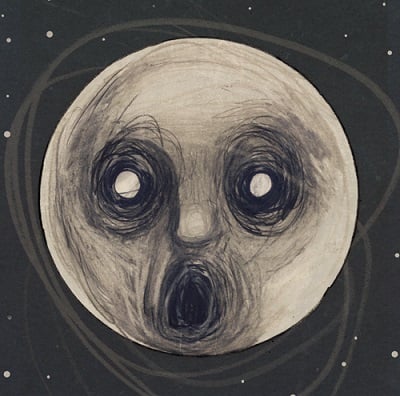/PAlogo_v2.gif) |
|
Post Reply 
|
Page <1234> |
| Author | |||
MikeEnRegalia 
Special Collaborator 

Honorary Collaborator Joined: April 22 2005 Location: Sweden Status: Offline Points: 20510 |
 Posted: November 04 2005 at 12:04 Posted: November 04 2005 at 12:04 |
||
|
^ isn't it the other way round? a 1/8 note in a largo should be about as long as a 1/4 note in an allegro, assuming that the allegro is about twice as fast (in terms of bpm) as the largo. |
|||
 |
|||
BaldFriede 
Prog Reviewer 

Joined: June 02 2005 Location: Germany Status: Offline Points: 10261 |
 Posted: November 04 2005 at 11:59 Posted: November 04 2005 at 11:59 |
||
Isn't it self-explanatory? One piece is a largo, which means that its tempo is slower; an 1/8 note in it will be slower than an 1/8 note in an allegro; in fact the length of an 1/8 note in a largo is the same (more or less, because, as you can see from the metronome scale I added in my first post, there is still quite a range about the tempo of a largo) as the length of a 1/4 note in an allegro (provided all other musical parameters are the same). Edited by BaldFriede |
|||
 BaldJean and I; I am the one in blue. |
|||
 |
|||
Certif1ed 
Special Collaborator 

Honorary Collaborator Joined: April 08 2004 Location: England Status: Offline Points: 7559 |
 Posted: November 04 2005 at 11:51 Posted: November 04 2005 at 11:51 |
||
|
This is only partly true; Marillion and the other Neo-Prog bands did keep Prog Rock going in the 1980s - that's a fact. They drew new audiences into Prog Rock, who were then able to explore and enjoy the roots of these new bands. They also had the beneficial side-effect of keeping elements of 1970s Prog Rock alive. Using Marillion as the example, they kept Progressing - their music from the 1980s has 1980s stamped all over it. It's Prog for the 1980s - that's the point. Twelfth Night were one of the greatest examples of this - compare them to any "Classic" prog band and get laughed at. King Crimson played a different style - and that was also progressive to some extent, when they weren't stuck in a rut, at which times it wasn't. Finally, the similarities between Marillion and Genesis are so superficial that the constant comparisons are just silly, and obviously based on what was printed in the media at the time, not reality. I mean: "Garden Party" sounds exactly like "The Knife", doesn't it? It's interesting to note that the only comments making this dubious comparison are just statements with no backup whatsoever. One might suspect that absolutely no thought went into them.
|
|||
 |
|||
BaldFriede 
Prog Reviewer 

Joined: June 02 2005 Location: Germany Status: Offline Points: 10261 |
 Posted: November 04 2005 at 11:50 Posted: November 04 2005 at 11:50 |
||
|
Have a look here for the explanation of "tempo giusto": http://www.tempogiusto.de/ (there is a button on the left named "English site" side where you can get the explanation in English).
|
|||
 BaldJean and I; I am the one in blue. |
|||
 |
|||
Certif1ed 
Special Collaborator 

Honorary Collaborator Joined: April 08 2004 Location: England Status: Offline Points: 7559 |
 Posted: November 04 2005 at 11:40 Posted: November 04 2005 at 11:40 |
||
|
Could you explain then? I must have mis-read it. |
|||
 |
|||
goose 
Forum Senior Member 
Joined: June 20 2004 Location: United Kingdom Status: Offline Points: 4097 |
 Posted: November 04 2005 at 11:13 Posted: November 04 2005 at 11:13 |
||
|
|||
 |
|||
Biggles 
Forum Senior Member 

Joined: June 18 2005 Status: Offline Points: 705 |
 Posted: November 04 2005 at 11:06 Posted: November 04 2005 at 11:06 |
||
|
The only thing I have to say about Marillion is that if I want to listen to Genesis, then I will listen to Genesis. |
|||
 |
|||
BaldFriede 
Prog Reviewer 

Joined: June 02 2005 Location: Germany Status: Offline Points: 10261 |
 Posted: November 04 2005 at 10:58 Posted: November 04 2005 at 10:58 |
||
Sorry, but you seem to have misunderstood me, Certif1ed. This is not what I said. I never doubted that being an 1/8 note has nothing to do with the tempo; in fact this is what I wanted to point out. But whether it is a 9/4 measure or a 9/8 has very much to do with the given tempo, and this is simply because the set tempo defines how many bars there are within a given time. (Actually it is mathematically a little more complicated, but I'll skip that). As to the metronome swing theory: I didn't read about it, I heard a radio feature about it. It was first postulated by musicologist Willem Retze Talsma; Grete Wehmeyer and Clemens von Gleich are two other musicologists who are of the same opinion. They call their theory "Tempo Giusto", "Right Tempo". Edited by BaldFriede |
|||
 BaldJean and I; I am the one in blue. |
|||
 |
|||
Certif1ed 
Special Collaborator 

Honorary Collaborator Joined: April 08 2004 Location: England Status: Offline Points: 7559 |
 Posted: November 04 2005 at 04:52 Posted: November 04 2005 at 04:52 |
||
Sorry, BF - that isn't true. Time signatures have nothing to do with tempo, and nor do notes. A 1/8 note is always a 1/8 note. A Semibreve (4 crotchets) is considered a "whole" note. For example, in 4/4, we have 4 1/4 notes to the bar. If an Adagio or a Lento is in 4/4, then all beats are 1/4 beats. If an Allegro or a Presto is in 4/4, then all beats are still 1/4 beats - the tempo indicates that the base time for the beats has changed, not the proportion. I hope this clarifies it!
I've never read that theory about the metronome swing - it sounds interesting. Could you tell me where you read it? |
|||
 |
|||
transend 
Forum Senior Member 

Joined: May 15 2005 Location: United States Status: Offline Points: 876 |
 Posted: November 03 2005 at 20:41 Posted: November 03 2005 at 20:41 |
||
|
Well, ya know I LOVE Grendel and Suppers Ready, both wonderful songs, BUT Yes, Grendel is an utter Suppers ready rip off, which the band are mildy embarrassed about now. Still a good song, however. |
|||
 |
|||
Cygnus X-2 
Special Collaborator 
Honorary Collaborator Joined: December 24 2004 Location: Bucketheadland Status: Offline Points: 21342 |
 Posted: November 03 2005 at 20:02 Posted: November 03 2005 at 20:02 |
||
I meant the sound of the name Apocalypse in 9/8 sounds better than Apocalypse in 9/4. But kudos for the little lesson, Friede. |
|||

|
|||
 |
|||
BaldFriede 
Prog Reviewer 

Joined: June 02 2005 Location: Germany Status: Offline Points: 10261 |
 Posted: November 03 2005 at 20:00 Posted: November 03 2005 at 20:00 |
||
Whether a note is an 1/8 or a 1/4 note depends on the general tempo of a piece. Of two notes of the same length one can be an 1/8 note, because it is used in a piece that is a largo, while in another piece that is an allegro the same note is a 1/4. Most classical composers give a bpm at the beginning of the piece, like 112 (which does not keep conductors from choosing their own tempo for it  ; to make things more complicated there also is a theory by a German musicologist that the classical composers actually counted a backward and forward swing of the metronome as one single beat, which means their music music is being played double as fast today as was their intention; she has recorded some pieces like the Waldstein sonata in their "real" tempo; listening to them in comparison to the fast versions is a strange experience. ; to make things more complicated there also is a theory by a German musicologist that the classical composers actually counted a backward and forward swing of the metronome as one single beat, which means their music music is being played double as fast today as was their intention; she has recorded some pieces like the Waldstein sonata in their "real" tempo; listening to them in comparison to the fast versions is a strange experience.  ) )
So to say the rhythm in "Apocalypse in 9/8" is actually 9/4 only makes sense if you know what tempo the piece of music is in. Some common tempo markings, from slow to fast (for more information go to http://en.wikipedia.org/wiki/Tempo ): Largo - slowly and broadly |
|||
 BaldJean and I; I am the one in blue. |
|||
 |
|||
goose 
Forum Senior Member 
Joined: June 20 2004 Location: United Kingdom Status: Offline Points: 4097 |
 Posted: November 03 2005 at 17:43 Posted: November 03 2005 at 17:43 |
||
|
I think a little more than maybe

|
|||
 |
|||
Certif1ed 
Special Collaborator 

Honorary Collaborator Joined: April 08 2004 Location: England Status: Offline Points: 7559 |
 Posted: November 03 2005 at 15:32 Posted: November 03 2005 at 15:32 |
||
|
I would estimate that Marillion "stole" probably no more than 10% of their ideas from Genesis, if that. The famous section in Grendel is quite obviously based on "Apocalypse in 9/8", no matter what the time signature - the point is that the two sections map onto each other in terms of telling the particular story. Marillion's musical treatment of it is quite different - and it is the only time they "steal" an idea directly. There are other times where homage is paid - but the overall style, particularly of Fish-era Marillion, is so very different to 1970s Genesis that I'm surprised that anyone believes all the old guff about them being some kind of "tribute band". If you think that, you've obviously never heard PFM or IQ, or a shedload of other bands that are far closer in sound. Let's be honest here - which Marillion songs sound like which Genesis songs? That'll be none of them. Except, maybe, that bit in Grendel.
Edited by Certif1ed |
|||
 |
|||
The Prognaut 
Prog Reviewer 

Joined: April 14 2004 Location: Somewhere Else Status: Offline Points: 1492 |
 Posted: November 03 2005 at 13:18 Posted: November 03 2005 at 13:18 |
||
So true. Even though I'm a devoted fan of the band Fish led until 1989, I'm not going to deny that most of that work performed and released was mostly based upon the Gabriel era "Genesis", giving Marillion a new foundation for improvement and experimentation. If not entirely Xeroxed, "Grendel" is, let's say, an "excerpt" from "Apocalypse in 9/8". No question about it. Land
Edited by landberkdoten |
|||
|
break the circle
reset my head wake the sleepwalker and i'll wake the dead |
|||
 |
|||
FragileDT 
Forum Senior Member 
VIP Member Joined: June 20 2005 Location: United States Status: Offline Points: 1485 |
 Posted: November 03 2005 at 12:59 Posted: November 03 2005 at 12:59 |
||
Hey, calm down a little. Maybe I exaggerated a little. Marillion probably stole 95% of their ideas from Genesis.  In all honesty I am not saying that Marillion is a bad band because they are far from it. The only thing I'm talking about is the obvious Genesis sound that they have tried to emulate. There's really no sense in arguing it, since it is well known. And I would have to go by saying that King Crimson kept the prog flame alive. |
|||
|
One likes to believe
In the freedom of music But glittering prizes And endless Compromises Shatter the illusion Of integrity |
|||
 |
|||
SlipperFink 
Forum Senior Member 

Joined: September 12 2005 Location: United States Status: Offline Points: 230 |
 Posted: November 03 2005 at 12:21 Posted: November 03 2005 at 12:21 |
||
Ahh no.... It's 9 to the bar as an ostinato cadence. bum-bum bum bum-bum-bum Nine eighth notes. Counting in 9/4 puts the downbeat on the 'and' every other measure... I mean... hell... you can count it in 13 if ya want to interpret the part as a 200+ measure hemilola... Go crazy.... But as a practical issue. 9/8. SM. |
|||
 |
|||
CandyAppleRed 
Forum Senior Member 
Joined: September 25 2005 Location: United Kingdom Status: Offline Points: 166 |
 Posted: November 03 2005 at 06:46 Posted: November 03 2005 at 06:46 |
||
Thanks Cygnus - I can manage to count the 9 bit, but still can't work out how to count 4 or 8 in bar anyway !
|
|||
 |
|||
yargh 
Forum Senior Member 
Joined: October 04 2005 Status: Offline Points: 421 |
 Posted: November 02 2005 at 11:36 Posted: November 02 2005 at 11:36 |
||
I suppose age *is* a factor, although my experiences are different. I learned of the existence of progressive rock in the mid-1980s (I was too young in the '70s to remember its music as it was happening) -- a friend of mine who knew I was into Genesis had a couple of Marillion albums and said "you should hear these guys -- they sound like Genesis!" So I borrowed his cassettes and returned them the next day in disgust. "You're right," I said. "They do sound like Genesis." Maybe if I was older I would have been bitter enough towards the music industry and disillusioned enough by the 1980s and I would have liked those surface elements that Marillion possessed a lot more. But as much as I liked (and still like) much of the mainstream prog from the 1970s, I'm too young to have developed a nostalgia for it. I just hear the music as music -- and as music, Fish-era Marillion doesn't excite me very much. But yeah -- I see your point about Marillion's "honesty" and of course I do admire Marillion's anti-corporate streak and their dedication to play whatever music they wanted (and to make money off it). |
|||
 |
|||
Sean Trane 
Special Collaborator 
Prog Folk Joined: April 29 2004 Location: Heart of Europe Status: Offline Points: 19597 |
 Posted: November 02 2005 at 11:07 Posted: November 02 2005 at 11:07 |
||
|
I think this is a very correct assesment in retrospect> This point is valid nowadays when most prog rock fans are now aware that groups like Univers Zero and Art Zoyd, and other RIO acts actually kept the progressive music spirits alive or even existed , but the public was not aware of this (outside a few nutcases and there were fewer active prog fans in the 80's then there are today). As A belgian (although I was in a Canadian exile from the early 70's onwards) , I was not even aware of Univers Zero until 88 date of which I got back across the pond. So this tells you a bit how osbcure those progressive musos were. To the public eye watching rock music evolution through commercial radios , there was only Marillion and consorts. I had to wait until the mid-90's to discover Japanese mid-80's neo-prog groups because they were completely absent from the public eye. In a way , bravo to Marillion This is where honesty must come in consideration (beyond the feeling factors): Marillion came to fill a void (even if they were completely honest in doing their music , believing it and not thinking of a financial move) and consumers actually were happy with the acetate instead of nothing! So Marillion got such a following because there was nothing else in that "market niche" among other reasons. This is why I believe that they are way over-rated! Especially compared to Univers Zero and Von Zamla!! |
|||
|
let's just stay above the moral melee
prefer the sink to the gutter keep our sand-castle virtues content to be a doer as well as a thinker, prefer lifting our pen rather than un-sheath our sword |
|||
 |
|||
Post Reply 
|
Page <1234> |
| Forum Jump | Forum Permissions  You cannot post new topics in this forum You cannot reply to topics in this forum You cannot delete your posts in this forum You cannot edit your posts in this forum You cannot create polls in this forum You cannot vote in polls in this forum |